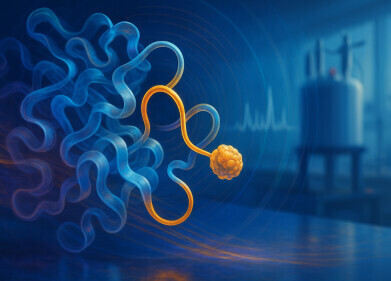Microscopy & microtechniques
New research confirms role of flavonoid luteolin in cancer
Jan 23 2012
Flavonoid luteolin has been found to inhibit the activity of cell signalling pathways (Insulin-like growth IGF and Phosphatidylinositol 3-kinases PI3K) that is known to be a mechanism for the uncontrolled cell division and cancer growth in colon cancer cells.
The research, published in BioMed Central's open access journal BMC Gastroenterology, shows that luteolin, which is commonly found in fruit and vegetables, was able to block the secretion of IGF-II by colon cancer cells and decrease the amount of receptor (IGF-IR) precursor protein within two hours. It also reduced the amount of active receptor.
There were 101,340 new cases of colon cancer and 39,870 new cases of rectal cancer in the US in 2011 according to the American Cancer Society. The death rates, however, have been dropping for over 20 years due to better screening and improved treatment. There are now more than one million survivors of colorectal cancer in the United States.
Professor Jung Han Yoon Park said: "Our study, showing that luteolin interferes with cell signaling in colon cancer cells, is a step forward in understanding how this flavonoid works. A fuller understanding of the in vivo results is essential to determine how it might be developed into an effective chemopreventive agent."
Posted by Neil Clark
Digital Edition
Lab Asia Dec 2025
December 2025
Chromatography Articles- Cutting-edge sample preparation tools help laboratories to stay ahead of the curveMass Spectrometry & Spectroscopy Articles- Unlocking the complexity of metabolomics: Pushi...
View all digital editions
Events
Jan 21 2026 Tokyo, Japan
Jan 28 2026 Tokyo, Japan
Jan 29 2026 New Delhi, India
Feb 07 2026 Boston, MA, USA
Asia Pharma Expo/Asia Lab Expo
Feb 12 2026 Dhaka, Bangladesh

.jpg)
-(2).jpg)
















